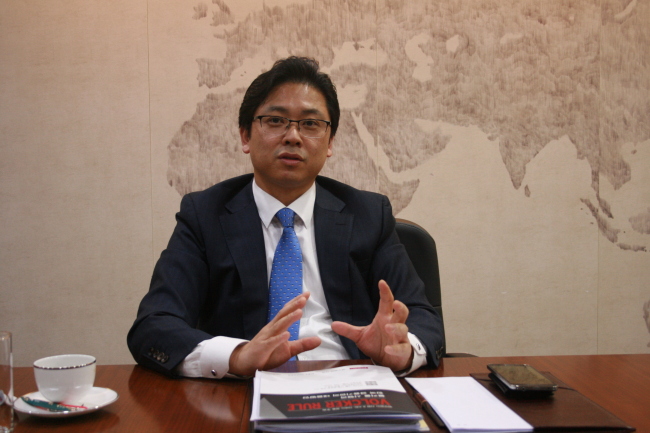The Korean financial sector should prepare for the Volcker Rule, which will be implemented in the U.S. in July next year, in order to avoid disadvantages and fines, according to a local attorney.
“Local securities and asset management companies should have more understanding of the rule and its potential impact on them,” said Lee Haeng-gyu, an attorney at Jipyong, a South Korean law firm, in a recent interview with The Korea Herald.
The Volcker Rule, named after former Federal Reserve Chairman Paul Volcker, is aimed at prohibiting banks from making speculative investments with their own funds. Such a reckless investment activity had contributed to the 2008 financial crisis. The rule restricts the U.S. commercial banks from proprietary trading, and limits their ownership of hedge funds and private equity funds.
This will affect the Korean financial sector as the rule would also apply to foreign banks in the U.S. Korea’s major banks including Shinhan, Woori, KDB, NH, KB, Hana, and IBK have branches in the U.S. The banks would face investment restrictions in the U.S. once the rule goes into effect next year.
“One thing local financial groups missed is that the rule also applies to banks’ subsidiaries such as securities firms, asset management companies and insurance companies,” he said.
“As of now many of them have little understanding of this issue and thus haven’t started preparing for the rule.”
 |
| Lee Haeng-gyu, an attorney at Jipyong (Jipyong) |
For instance, since KB has a branch in New York, its subsidiaries including KB Investment & Securities and KB Asset Management will also face restrictions in the U.S. financial market even though they have no branch offices in the U.S.
“Under the Volcker Rule, if a bank’s subsidiaries in Korea break the rule, the bank’s U.S. branch office would end up paying a fine or face operation suspension for months,” he said.
In a bid to avoid this trouble, financial groups should be fully prepared for this, he said.
“They should create a main body in response to the rule within the group and create a unified compliance program to share it with all of its subsidiaries,” Lee said.
According to the latest data from the Financial Supervisory Service, Korean banks’ proprietary trading amounted to 155 trillion won ($140 billion) in 2011. Of this, around 5 percent, or 7.8 trillion won, could be held accountable under the Volcker Rule.
By Shin Ji-hye (shinjh@heraldcorp.com)

